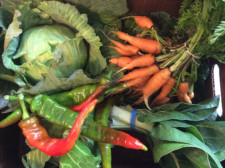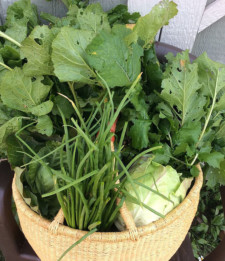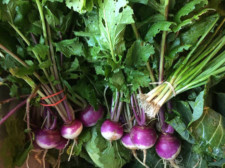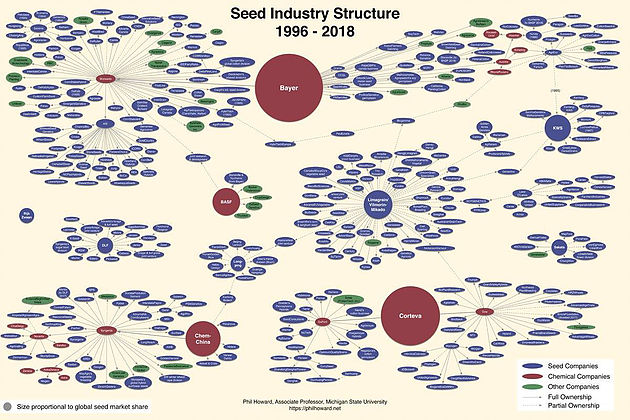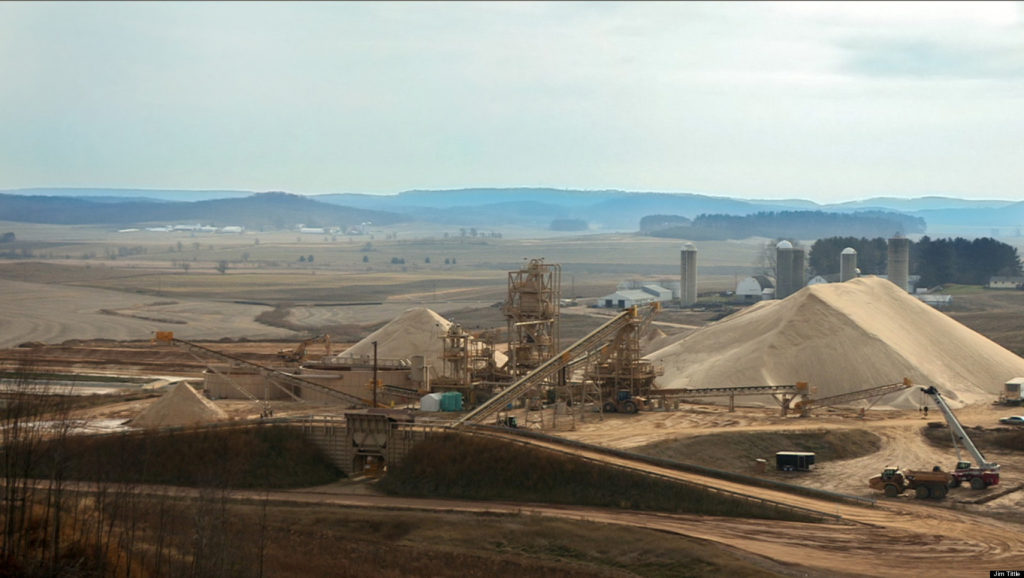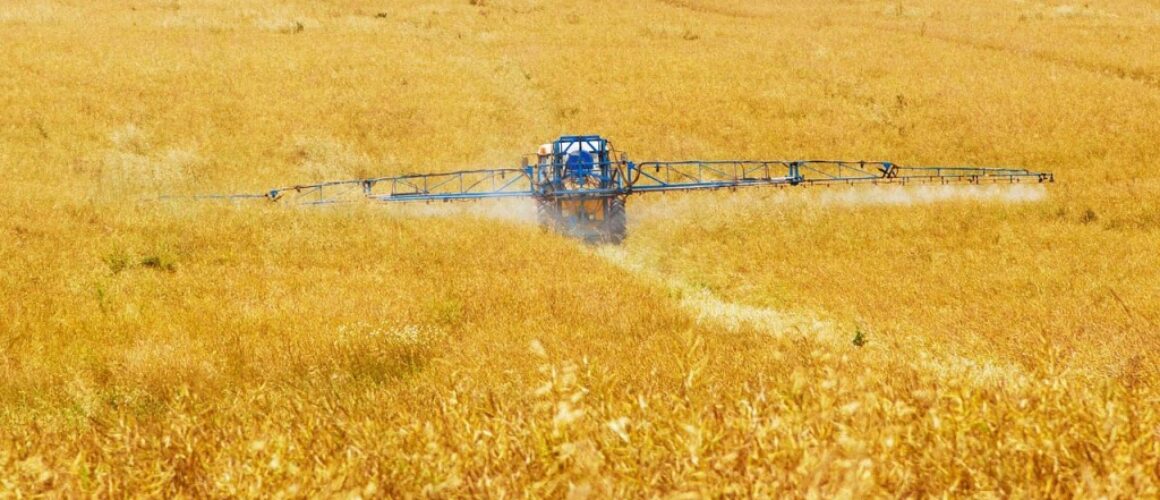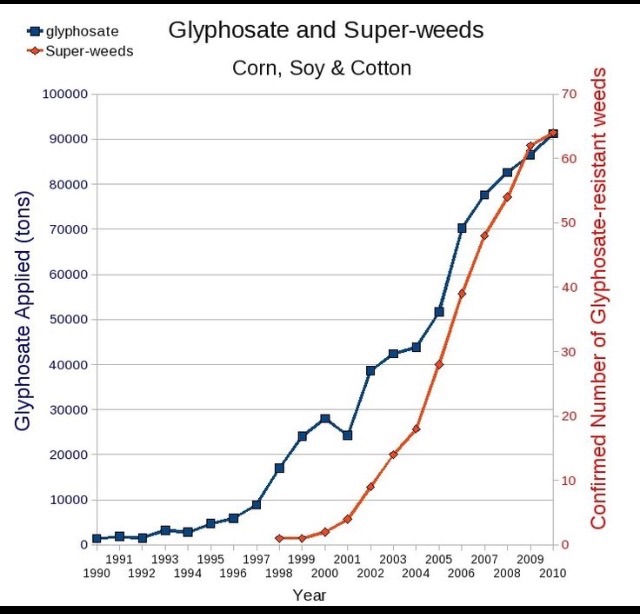The State of the Food System, as Shared by a Farmer
From Karen King, Mt Citra Farm
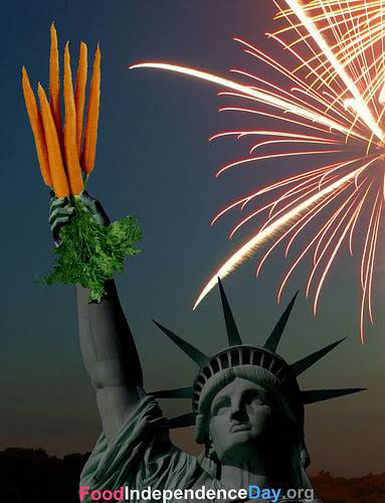
Since the article came out, hundreds of dairy farmers have lost their farms due to falling milk prices, and commodity farmers have found themselves in the center of a trade war that has affected their ability to sell their crop and the animals they raised and fed in expectation of selling them to a market they have been able to count on for decades. Now with the government shutdown, their ability to obtain operating loans and obtain data from the USDA for planning is being affected, as are food inspections and many other sectors. Every day, there is new information about how this is affecting our food system. The latest revelation of programs to be affected is the school lunch program, which is funded in the farm bill that is not being implemented due to the shut down.
Winter is the time when farmers would normally obtain operating loans, purchase their seeds, pay their bills from the previous year, and plan for the upcoming growing season. This year, however, with the shut down, USDA services have been dramatically affected, and the recently passed farm bill is on hold, as is the trade war bailout that was promised to farmers. Banks are not lending because the USDA backs farm loans and crop insurance. Farmers cannot plan their upcoming season or purchase the seeds, fertilizer, and pay their bills. If this continues much longer, we are going to see mass foreclosure of farms.
There are only 4 USDA inspected processors in the entire state of Florida for independent farmers; only one of which does not steal or lose meat. We are concerned right now because the USDA inspector we depend on is working unpaid. If she decides to not work or finds other employment, we will not be able to get meats processed. All of the local farmers are in the same boat right now. Chicken can be processed without USDA inspection, but it cannot be sold to distributors or retailers under the limited poultry license. In order for it to be sold and distributed, it has to be done under USDA, which of course, is shut down, and there is only one USDA poultry processor in the entire state of Florida. They are five hours from here.
Thankfully, we are not commodity farmers, nor do we rely on bank loans. My stubbornness and unwillingness to borrow money from the bank and use our land as collateral has kept us from growing our farm and severely limited us, but at the same, our farm is not at risk right now. This year has been tough. The crazy weather and intense heat affected the growth of our crops in the beginning of the season. Other local farmers have experienced wash-outs from the rains. Thankfully, our land is located on high ground and has good drainage so we only lost crops from the heat and not from the rains too. Now that the weather has cooled, produce is growing nicely. But the lack of distribution channels and inability to get into a good local “farmers” market due to market politics has limited the amount of produce and meats we are able to sell, which in turn limits our income and ability to be profitable. I have to have an off-farm job, but at least we still have our farm, while thousands of other farmers are losing theirs. We question every day whether we should continue to grow food for others, since it seems that no matter how hard we try, our expenses are more than our income, and my husband working 80 hours a week for no pay, while putting over 400 miles on his truck each week for one delivery alone, does get daunting. At this point, after we pay our helper, we are paying to feed others.
An average of 3-6 people come to our farm each weekend for produce. I enjoy visiting with our customers and love the conversation. It is wonderful to be speak to others with similar values who appreciate what we do. I am grateful for those we have met and those who have supported us along this journey through the many ups and downs. The personal satisfaction, relationships we have fostered, and knowing what we are doing is very much needed and appreciated by those who we provide food to is what keeps us going. The CSA pays for our helper’s labor, but there is no extra for us or to invest in infrastructure. I love food. I love educating others about it – it gives me purpose – and I understand the state of our food system. That is what has kept us going. There is so much to love about this lifestyle and the impact we have that I don’t want to give it up but the struggle is real, and that part I do not like. Again, at least we are not being forced out like so many other farmers right now, and we have food for ourselves.
We are originally from the Midwest. We moved to Florida in 2011 and came to the Ocala area five years ago to build our farm. Although we were not farmers previously, the community I grew up in was surrounded by farms and was a major exporter of grains. We lived in the center of hurricane during the last farm crisis and it has forever been burned in my mind. As I got older, I began to think about where our food came from and we opened a natural food store in Illinois, then one in southwest Florida. Experiencing the food system through being a grocer in two different states and working with the local farmers was a real eye opener as to the history and the future of our food. Hearing their stories and having experienced shortages due weather related crop failures, collapsed bridges, and other events has made me aware of just how vulnerable our food system is, and I have been able to recognize the direction we were headed. Being educated about the true reality of situation scared us so much that we sold our businesses and bought this farm. I have watched the pieces come together and I have to say, having followed the food system closely for twenty years, what is happening right now, was fully expected, minus a few details and curve balls that I did not see coming. I did not expect a government shutdown to be the nail in the coffin for so many farmers. I expected other things to disrupt our food system, but not this. The impact of losing our farmers and where this crisis may lead us is a sobering thought.
There is a lack of local farms, and our community could not feed itself it had to. Without enough local farms to feed us and relying on imported food, we become immensely vulnerable to natural disasters and political disputes. I don’t know about you, but I found it extremely unnerving to see the empty store shelves and coolers after 8 days without power during hurricane Irma. Walking into Winn Dixie and seeing the empty shelves and coolers, normally filled with food, was as if I had stepped on to the set of a post apocalyptic movie, only it was real, and thankfully, there were no zombies. That alone should have caused enough alarm for people to take seriously the vulnerability of our food system. Our reliance on food being shipped from afar and the necessity of electricity for coolers and storage, not to mention electricity necessary to pump fuel and transport food, is another factor to consider. If you remember, there was also a fuel shortage from the hurricane. Relying on food being transported from far away is like playing Russian Roulette with our sustenance.
I have been involved in the last three farm bills and seen the corruption, and am one of the very few people who has actually read a farm bill. I can assure you that would be shocked to know what and who is funded in the farm bill. It is the single largest piece of legislation enacted by Congress and has a budget of nearly three quarters of a trillion dollars. Many things in the farm bill, in my opinion, should not be in the farm bill. But as I have come to realize, the farm bill is a giant slush fund for corporations and Congress. I was heavily involved 2012 bill when Congress slipped in a rider giving biotech companies immunity if health problems were later found from gmos. After six months, the rider was removed from the final draft, but not without a huge amount of activism and awareness through social media resulting in thousands of phone calls to Congress and protests. This latest farm bill includes funding for blue-green algae, which is used to make jet fuel and is causing havoc in South Florida.
Ultimately, I know the farms in the Midwest are doomed. I have known it for years. When we sold our grocery store nearly six years ago, we went back home for a visit. I was appalled at what I saw and learned. Mining companies had begun buying up thousands of acres of land and stripping the top soil for what they called “white gold”, the main ingredient in fracking; silica. The silica lies under the Midwest farmland. My mother’s community, and where I grew up, in La Salle County, Illinois has named themselves “The Silica Capital of the World”. The large deposit of silica, known as the Saint Peters Sandstone is very shallow and lies under the farmland of four Midwest states; Illinois, Wisconsin, Minnesota, and Iowa. Millions of pounds of silica are used in every fracking well in the world.
The land must be stripped in order to access the silica. The grain terminals back home, owned by ADM (Archer Daniels Midland), are one of the main exporters along the Illinois River. The grains are loaded onto barges and sent down the Illinois River to the Mississippi River, then out to the Gulf, and shipped throughout the world. Those ports along the Illinois River are now being used to export silica instead. You see, we are on our way to becoming the world’s largest supplier of liquified natural gas (Wall Street Journal). They are now fracking the Gulf along Florida’s coast, and have sold gas well leases along the Atlantic. It is the plan to frack along every coast of the United States. The gas is being sold to China, Germany, and is being used in the space program. The main ingredient; silica is under the Midwest farms. They have to get the farmers off the land to access the silica. We fought the miners and they won. They have contaminated the water in my mother’s community and in Wisconsin and Minnesota. They have been driving farmers out of my community since at least 2012.
Then there’s Brazil. As the US shifts away from an agriculture based economy to a major oil and gas exporter, Brazil is stepping in and taking over as the new agriculture superpower. Brazil has been purchasing major American food manufacturers in a buying spree that began in 2014. Brazilian companies, with loans backed by the Brazilian government, have purchased many of the US beef and poultry operations, as well as Kraft and Heinz, and is attempting to take over Unilever. As the US is putting corn farmers out business so they can strip their land, Brazil has negotiated to become Mexico’s main supplier of corn, and supply China with soy. Brazil and Mexico now supply more orange juice to Florida than Florida farmers do. JBS, Brazil’s major meat exporter, who supplies 60% of the US meat market, was recently found to be exporting rotten beef and poultry. Many government inspectors were fined and terminated, and former president of Brazil was indicted in accepting bribes from JBS.
It just gets worse the deeper you go but I will stop here for now. Take my advice. Plant a garden and get to know your local farmer. At the rate things are going, you are going to need both garden and a relationship with your farmer sooner than we want to believe. I have spent the last four years running around trying to circumvent what is happening right now. I tried to warn our local leaders about future shortages and price spikes, but nobody has taken this seriously, and here we are, about to put the reaming farmers out of business. The privilege we have had in this country of abundance and cheap food is nearing its end.The fruits our labor, beautiful produce, organically grown.
This week we have the following. Everything was grown on our farm and is harvested fresh to order.
Carrots 🥕
Purple Top Turnips & Greens
Lettuce
Kale (Tuscan/ Lacinato & Curly)
Cabbage
Green onions
Jimmy Nardello sweet frying peppers
Chard
Radishes
Broccoli
The Sobering Details Behind the Latest Seed Monopoly Chart
“As four seed companies now control more than 60 percent of the global market, a seed policy expert argues that consolidation poses major risks to our food supply.”
https://civileats.com/2019/01/11/the-sobering-details-behind-the-latest-seed-monopoly-chart/amp/#click=https://t.co/s9bTwMVcNv
Read More about the state of our food system by clicking on the title of the articles below.
The Government Shutdown Risks Shutting Down Family Farms
Next shutdown victim: School lunches:
“One rural school district is already rationing fruit and vegetables”
What the Government Shutdown Means for Food, Farmers, and Eaters
Farm bailout money will go to Brazilian-owned meatpacking firm, USDA says
Government Shutdown Curtails F.D.A. Food Inspections
Brazil meat-packing giants ‘exported rotten beef and poultry’
The Sand Mines That Ruin Farmland
Mining for fracking sand drives Illinois farmers from land
PHOTOS: ‘The sand mines are so large’:
La Salle County’s silica sand mines look quite different when you’re in the air
ROTTEN Official Trailer (HD) Netflix Food/True Crime Documentary Series Series
Brazilian Billionaire Buying Up Major American Food Companies
Edible Landscapes Are Un-Lawning America:
Lawns are so last century. All the cool kids are growing edibles.
Food is Helping Flint Recover and Reimagine Itself
Addressing the water crisis head on, multiple healthy food initiatives are working to improve health, nutrition, and food security while jump starting the local economy.

